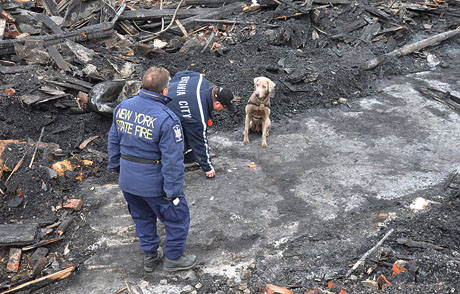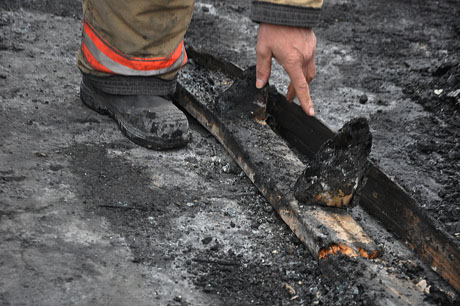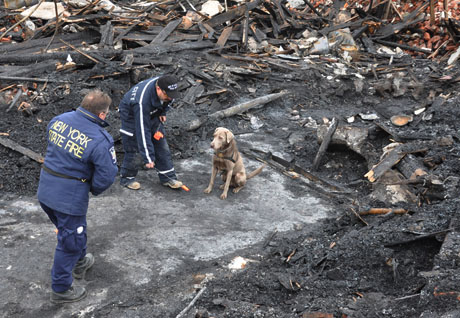An angry and belligerent Reginald M. Wilson appeared before Robert C. Noonan this morning for sentencing on his burglary, 2nd conviction.
Wilson remained adamant that he did not break into the home of an 86-year-old woman on State Street in September.
"Look at my past modus operandi, Your Honor," Wilson said. "In the past it's just been robbery. In past time, yeah, I would have robbed somebody, but sneaking in to some old lady's house, that’s beneath me. That’s a savage thing and I would never do that."
Noonan said he didn't buy the logic that a man convicted of multiple robberies wouldn't also break into a house.
He imposed the maximum sentence available, which is 15 years on the burglary, 2nd, conviction and three-and-a-half to seven years, served concurrently, on the criminal possession of stolen property conviction.
Wilson may have avoided a life sentence because New York's persistent felony offender law was recently declared unconstitutional for the purpose of imposing life sentences.
At the beginning of the hearing, Noonan explained that because of the ruling he would not consider a life sentence.
When Wilson entered the courtroom, escorted by two deputies, shackled and wearing jail orange and shower sandals with white socks, Wilson looked out at the gallery and said, "f---king clowns."
When it came time for Wilson to review his prior felony record, Judge Noonan asked him to look at it and Wilson refused.
When Noonan pressed Wilson to look at it, Wilson said, "I know it by heart."
The document listed felony convictions in Erie and Genesee counties going back to 1993, including two attempted robbery convictions and a rape, 3rd, conviction.
When asked if he disputed any of the convictions, Wilson said only the 1999 rape, 3rd, conviction, which he said if it happened today would be reduced to a sexual misconduct charge. He also complained that he had inadequate counsel at the time.
Noonan then read Wilson's prison record, which features stints of two or three years of prison followed by a year or two of freedom.
District Attorney Lawrence Friedman noted that Wilson has a 27-page criminal history, with 14 felony convictions and 30 arrests.
Based on the record, Noonan said, he felt compelled to impose the maximum possible sentence.
You’re are a career criminal," Noonan said. "You don't have to be on the street very long before you commit another crime."
Wilson said he plans to appeal his conviction. He complained that his attorney, Fares Rumi, failed to call key witnesses, in particular Joseph Dash.
Dash, who previously pled guilty for his part in the State Street burglary, would have offered testimony that would have exonerated him, Wilson said.
Displaying sharp, jailhouse-lawyer knowledge of legal proceedings, Wilson mentioned evidentiary statutes and case law as he rattled off reasons his conviction should be vacated.
"There are other witnesses willing to testify on my behalf, Wilson said. "If this goes to the appellate division, I'm confident it will be overturned."
It will be up to an appeals court, Noonan said, to decide those matters, but he had to proceed with sentencing.
When it came time for Wilson to sign an order of protection, ordering him to stay away from the burglary victim, Wilson at first acknowledged that he would have no reason to contact the elderly woman, but then he refused to sign the document.
At that point, Noonan reminded Wilson that when his case is heard on appeal, the justices will review the transcript of the sentencing and his actions would help tell them what kind of person he is.
"You already said what kind of person I am," Wilson shot back.
Defense attorney Rumi then asked to be relieved as Wilson's attorney for purposes of a June 24 restitution hearing. He said Wilson has been uncooperative since his jury trial conviction on March 31.
Wilson said he has been uncooperative because Rumi won't turn over court documents Wilson requested.
Rumi also said he hasn't been paid by Wilson.
Noonan said they could work that out themselves, but that he wasn't relieving Rumi until and unless Rumi files a written motion.
For previous coverage of Reginald Wilson, click here.






